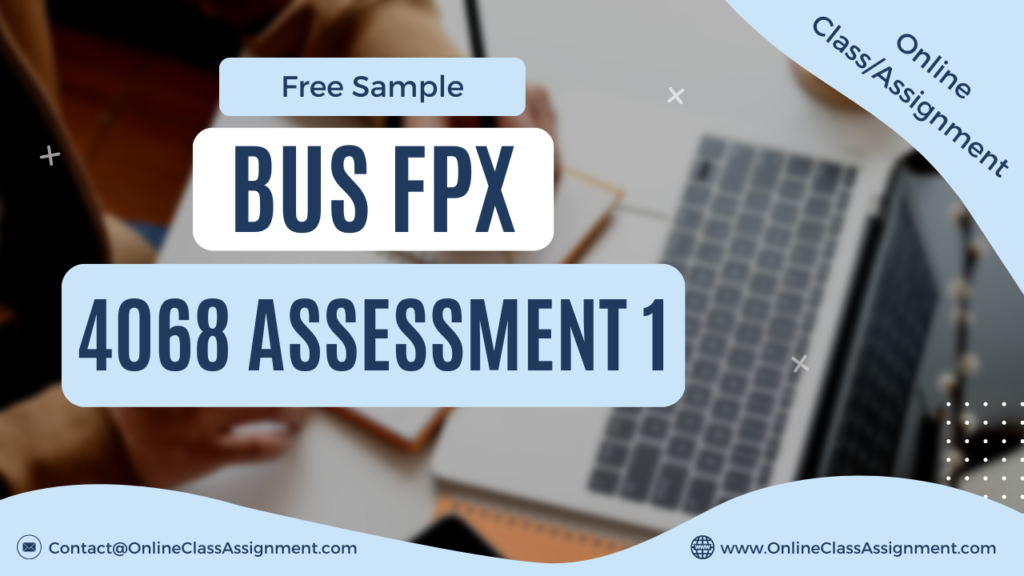BUS FPX 4068 Assessment 1 Investigative Accounting Practices

BUS FPX 4068 Assessment 1 Investigative Accounting Practices
Student Name
Capella University
BUS-FPX4068 Contemporary Auditing Using Investigative Accounting Practices
Prof. Name
Date
Case 1: Investigation for Merger
Types of Investigations for Forensic Accounting Firm
In the context of Southeast Ag Supply Company’s potential merger, it is essential for the forensic accounting firm to conduct various investigations. According to the Financial Forensic Blog, there are three primary reasons for retaining a forensic accountant during a merger or acquisition:
- Valuating the company: This involves verifying financial documents such as accounts payable, accounts receivable, earnings, and cash flow statements to determine the true value of the company being considered for merger.
- Assessing return on investment: Examining detailed income statements and balance sheets for several years can provide insight into the company’s financial health and potential return on investment.
- Performing due diligence: This entails scrutinizing the potential company’s books, accounting systems, and internal controls to ensure transparency and mitigate risks associated with the merger (Gibson, 2021).
Types of Outside Assistance
To conduct a thorough investigation, the forensic accounting firm may require assistance from various professionals:
- Risk management and IT experts: These professionals can assess potential threats such as cyber attacks and recommend improvements to internal control policies and systems.
- Lawyers or legal assistance: In cases of suspected embezzlement or stock fraud, legal experts can guide the forensic accountant and assist in presenting evidence or preparing for legal proceedings.
- Accountants specializing in specific areas: Accountants with expertise in accounts payable or receivable can efficiently identify discrepancies and follow transaction trails, aiding in uncovering fraudulent activities (Hopwood, Young, Leiner, 2nd edition).
Case 2: Investigations in Civil vs. Criminal Matters
Differences in Investigations
Forensic accountants investigating civil matters primarily assist in filing complaints, supplying pretrial evidence, and testifying in court. In contrast, those investigating criminal matters may also have law enforcement powers, enabling them to make arrests, obtain warrants, and participate in plea agreements.
Similarities in Investigations
Both civil and criminal investigations involve formal trials with plaintiffs and defendants, requiring burden of proof and potentially leading to jury trials. Attorneys, law enforcement personnel, courts, and forensic accountants play crucial roles in both types of investigations (Hopwood, Young, Leiner, 2nd edition).
Similarities and Differences in Expected Outcomes
Both civil and criminal investigations aim to uncover wrongdoing and seek appropriate legal remedies. However, the nature of the offense and the legal procedures involved may differ. For example, civil cases may seek monetary or equitable relief, while criminal cases involve violations of statutes and potential imprisonment (Hopwood, Young, Leiner, 2nd edition).
Specialized Training for Different Investigations
Forensic accountants need expertise in accounting, finance, and legal matters. Additionally, skills in surveillance, interviewing, criminology, and IT are valuable for conducting thorough investigations. Effective communication skills are also essential for presenting findings and collaborating with other professionals (Hopwood, Young, Leiner, 2nd edition).
Case 3: Reasonable Assurance
Opinions on Reasonable Assurance
Derek Lodge’s perspective on reasonable assurance appears pragmatic, considering the practicality and costs associated with implementing a system that absolutely prevents fraud or misstatements. However, Amber Johnson’s insistence on stringent compliance reflects a desire for maximum security against financial irregularities.
Attainability of Preventing Financial Statement Fraud
While preventing all financial statement fraud or misstatement is challenging, implementing robust internal controls can significantly reduce the risk. However, complete prevention may be unattainable due to inherent limitations and human factors (Hopwood, Young, Leiner, 2nd edition).
BUS FPX 4068 Assessment 1 Investigative Accounting Practices
Impact of Reporting Structure on Fraud Prevention
The internal auditor reporting to the CEO can enhance fraud prevention efforts by ensuring accountability and transparency. However, it’s crucial for the CEO to take the auditor’s reports seriously and facilitate a culture of compliance and transparency within the organization (Hopwood, Young, Leiner, 2nd edition).
Case 4: Discovery of Fraud
Actions Regarding Discovered Fraud
Rachel Fancy should meticulously document the evidence of fraud, develop a fraud theory, and conduct thorough interviews. It’s essential to maintain objectivity and follow established procedures for collecting evidence.
Impact on Audit Procedure
The discovery of fraud should not influence the audit procedure itself. Rachel must remain impartial and continue the audit process diligently, regardless of the individuals involved.
Reflection in Audit Opinion Report
In the audit opinion report, Rachel should clearly outline the findings of fraud and recommend appropriate actions to rectify the situation. Collaboration with relevant stakeholders, such as the board of directors and legal authorities, may be necessary to address the fraudulent activities effectively.
References
Gibson, N. (2021, March 29). SPACS: Due diligence forensic approach to minimize litigation risk. Retrieved from https://www.forensicrisk.com/spacs-due-diligence-forensic-approach-to-minimizelitigation-risk/
Lowers Forensics International. (2020, February 27). Financial forensics blog. 3 Reasons why a forensic accountant should be a part of the M&A due diligence team. Retrieved from https://lowersforensics.com/2020/02/27/merger-acquisition-due-dilligence/
William, H., George Y., & Jay, L. (2011). Forensic Accounting and Fraud Examination (2nd Edition). McGraw-Hill Learning Solutions. Retrieved from https://capella.vitalsource.com/books/1260492990
BUS FPX 4068 Assessment 1 Investigative Accounting Practices
Get Capella University Free Business Samples
BUS FPX 3007
BUS FPX 3011
BUS FPX 3021
BUS FPX 3022
BUS FPX 3030
BUS FPX 3040
- BUS FPX 3040 Assessment 6 Labor Relations Recommendations
- BUS FPX 3040 Assessment 5 Employment Law
- BUS FPX 3040 Assessment 4 Compensation and Benefits
- BUS FPX 3040 Assessment 3 Retention and Separation
- BUS FPX 3040 Assessment 2 Performance Management and Training
- BUS FPX 3040 Assessment 1 Recruitment and Selection
BUS FPX 3050
BUS FPX 4012
